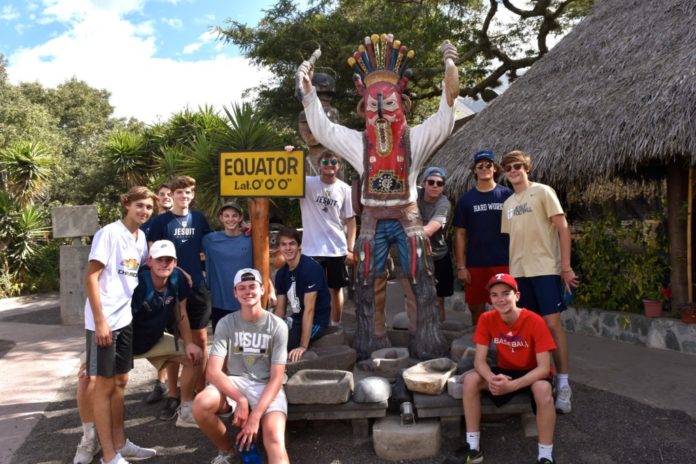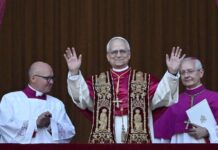Mid-way through the summer of 2018, twelve students and four staff members began their journey to Quito, Ecuador for an immersion/mission trip for 10 days. This trip contained everything from a hike up a massive mountain to simply playing soccer or volleyball with the local school boys and girls. 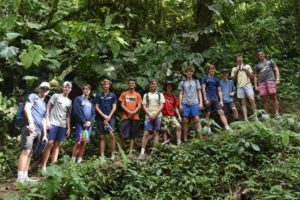
Although these Jesuit students explored a jungle on top of a mountain, rode across a volcanic lake on a small boat, and did many other amazing things, the most memorable and important days of their stay in Ecuador were spending time with the local people, learning about them, and helping them, many saying “I will never forget those kids.” So in this article you will be reading not of the tourist related activities but the spiritually and physically impacting experiences that anyone who went and will go on this trip will never forget.
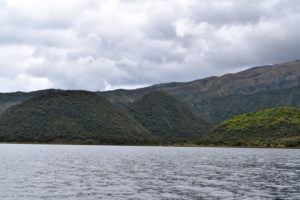
Jesuit students and faculty stayed in a center dedicated to housing volunteers who came to spend time not only visiting but helping other in Ecuador. This place was called El Centro de Los Muchachos Trabajadores, which translates to The Center for Working Boys. It got its name from when a priest, who we all call Padre, noticed how there were so many young boys working in the streets without a place to sleep. So he started the center saying to himself “if God wants it to happen, it will happen,” knowing that without God, there was no way for the center to stay afloat. Today, the center doubles as a successful school, attended by all types of children from just down the street to miles away.
When the Jesuit students got to play soccer with the local students, they were very excited to have fun. When they arrived at their field which sits just outside of the school at the center, the local students greeted the Jesuit students with banners of their team names. After a short introduction, all of the kids attending the school began a large game of soccer waiting for the Jesuit students to join in.
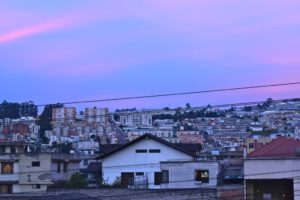 It didn’t take long for them to join, running out to the field the Jesuit students split up between teams. All had a blast with the local kids for an hour or so. For the rest of the week, whenever Jesuit had finished their scheduled activities for the day, for a few hours everyone would go over to the school, faculty included, and play games with the kids, whether that be basketball, volleyball, soccer, or simply playing catch.
It didn’t take long for them to join, running out to the field the Jesuit students split up between teams. All had a blast with the local kids for an hour or so. For the rest of the week, whenever Jesuit had finished their scheduled activities for the day, for a few hours everyone would go over to the school, faculty included, and play games with the kids, whether that be basketball, volleyball, soccer, or simply playing catch.
Matthew Freeman ’20 said, “It showed me that the families who may not have much are still very happy and involved with their Catholic faith,” making all of the students there understand what they have and that they shouldn’t take it for granted. From living in the middle of the city to living far up the mountain to save money, they met many different families.
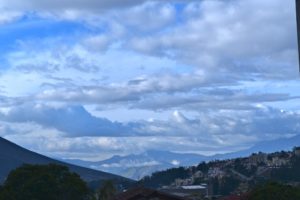 One student shared that “it was very sad seeing how some homeowners would not finish building their homes so they would not be forced to pay taxes on the building,” which is something that is common up at the top of the hills on the outskirts of Quito. The house visits overall were without a doubt one of the most unforgettable for the Jesuit students and faculty on the trip, changing how they live their daily lives.
One student shared that “it was very sad seeing how some homeowners would not finish building their homes so they would not be forced to pay taxes on the building,” which is something that is common up at the top of the hills on the outskirts of Quito. The house visits overall were without a doubt one of the most unforgettable for the Jesuit students and faculty on the trip, changing how they live their daily lives.
On one of the final days of the trip, the students and faculty rode local transport up the mountainside for their Minga. A Minga is when one or more people help another person with something that is too much for them to handle on their own as payment to the community with the mindset of “helping someone when they’re in need and someone will help me when I am.” For the Jesuit Minga, the students and faculty were tasked with leveling ground for the home of two sisters so that they could build another room.
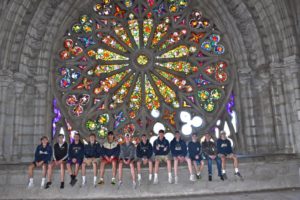 When they first got there and saw how much ground had to be cut out of the mountain a few confidently said “This won’t be too hard” and “This won’t take long,” but after a few hours of hard labor everyone realized just how difficult this was. Between pickaxing, shoveling into a wheelbarrow and buckets, and bringing the wheelbarrow and buckets a quarter-mile down the mountainside, everyone was exhausted by the time that they had finished. This was another eye-opening experience for the group and an unforgettable one as well where everyone became fully aware of how hard it must be for other people outside of the city and even in the city, it is not perfect either. One student claimed that they will “understand what [they] have and what others are missing and never forget to remember how lucky [they are].”
When they first got there and saw how much ground had to be cut out of the mountain a few confidently said “This won’t be too hard” and “This won’t take long,” but after a few hours of hard labor everyone realized just how difficult this was. Between pickaxing, shoveling into a wheelbarrow and buckets, and bringing the wheelbarrow and buckets a quarter-mile down the mountainside, everyone was exhausted by the time that they had finished. This was another eye-opening experience for the group and an unforgettable one as well where everyone became fully aware of how hard it must be for other people outside of the city and even in the city, it is not perfect either. One student claimed that they will “understand what [they] have and what others are missing and never forget to remember how lucky [they are].”


